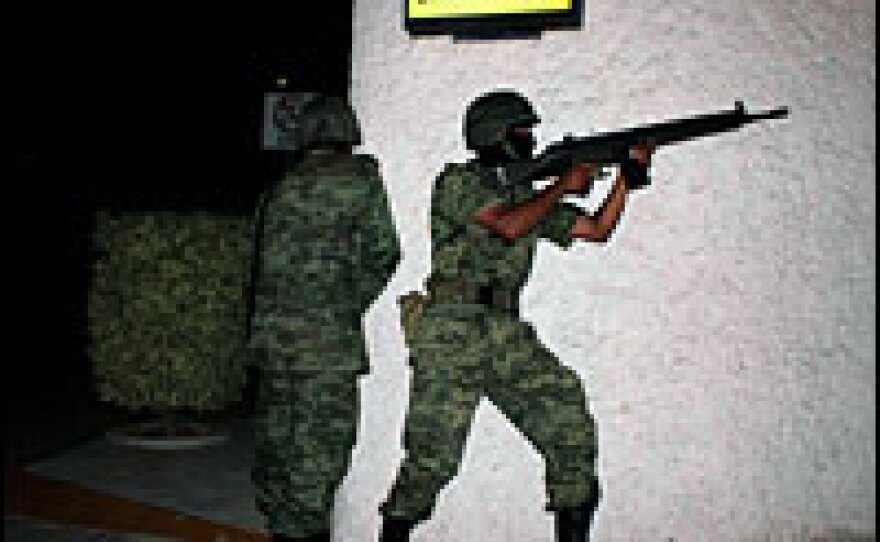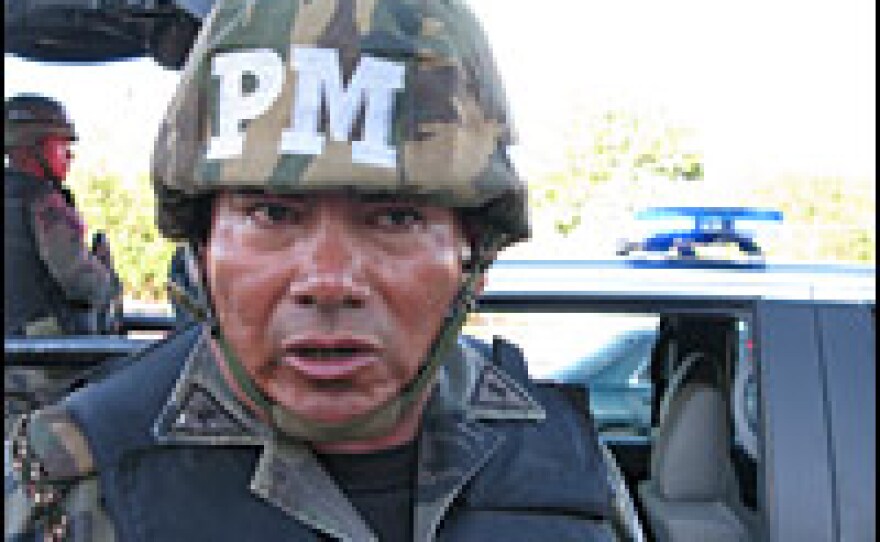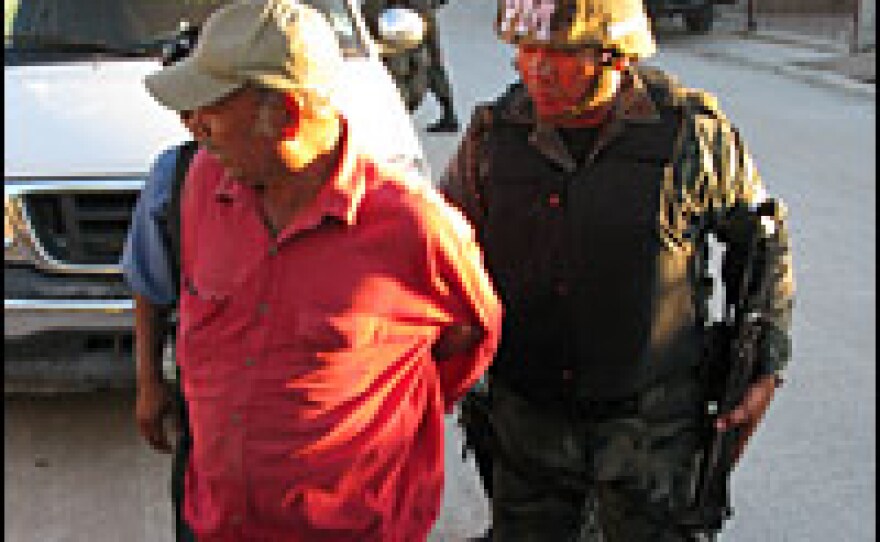


Mexico says it is making progress in its war against some of the hemisphere's most powerful drug cartels. But drug-related killings continue at an alarming rate in parts of Mexico, and some critics say President Felipe Calderon's war is misguided, mismanaged and unwinnable.
Mexican authorities have seized more than 4,000 tons of marijuana and almost 80 tons of cocaine since the government offensive began 2 1/2 years ago. Law enforcement officials have confiscated more than 30,000 weapons and hundreds of millions of dollars in alleged cartel cash.
Almost every day, the evening news announces that more accused narcotics traffickers have either been arrested or killed.
Yet the cartels continue to flex their muscle. A shootout in the Pacific beach resort of Acapulco last week left 18 people dead. Farther north in Zacatecas, the Zetas — a group of former Mexican soldiers allied with the Gulf Cartel — busted 53 of their members out of prison. And near the border in Sonora, drug hit men left 11 bodies — most without hands and feet — stacked in the back of an SUV with the engine still running.
Violence A Sign Of Success?
The level of violence is a reflection of the success of the strategy, says Adrian Franco Zevada, coordinator of international affairs for the Mexican attorney general's office in Mexico City.
"We are now at a point in the curve where we expect the levels of deaths and violence to start coming down," he says.
More than 10,000 people have died in drug-related violence since Calderon launched the fight in December 2006.
Franco says people are being killed because the government's attack on the cartels has left the criminal groups in turmoil.
He says Calderon took on the narcotics traffickers because the gangs had come to dominate some parts of the country.
"The state will not tolerate that. We are using every single force we have as a state to attack these individuals, these organizations," Franco says.
But officials close to Calderon say no strategy will work as long as the demand for illegal drugs remains strong in United States, the prime destination for much of the narcotics trafficked through Mexico.
Army Presence In Ciudad Juarez
The Mexican drug cartels are heavily armed with military-style weapons. They have access to jets, helicopters and even submarines. And they control the multibillion-dollar narcotics market in the U.S.
In March, in its most aggressive move yet against the cartels, the Mexican army took over the police department in Ciudad Juarez, on the U.S. border. Now, 10,000 soldiers and federal police are deployed across the Rio Grande from El Paso, Texas.
On a recent afternoon, Lt. Jesus Guadalupe Reyna de Ramirez of the Mexican army leads a dozen soldiers in three pickup trucks on a routine patrol.
After pulling over a small red car, the soldiers — with rifles in hand — leap from the trucks. In seconds, the three young men who were inside are spread-eagled against the trunk of the car. Their mother, who has gotten out of the car, as well, watches with a look of shock and disbelief.
"These guys make your heart stop," she says.
The soldiers don't find anything and send the family on its way.
Guadalupe says these routine, random traffic stops are an important part of what the army is doing in Juarez.
The patrols cruise both main streets and deeply pitted dirt roads in some of Juarez's toughest neighborhoods.
The only people they put into handcuffs this afternoon are men who have been drinking in public.
Guadalupe says rounding up drunks and pulling over speeders is part of re-establishing order in Mexico's deadliest city.
"These aren't functions of the army, but we are here to help support and carry out the functions of the municipal police," he says.
After A Lull, Killings On The Rise
Initially, after the army took over the Juarez police department in March, the killings dropped dramatically. But last month, the murder rate shot back up.
Despite the army presence, 124 people were killed in Juarez in May — a 67 percent jump from the same period last year.
On May 29, gunmen killed Manuel Arroyo Galvan, a sociology professor at the Autonomous University of Ciudad Juarez.
At a memorial for Arroyo on the university campus, his colleagues and students denounced the culture of impunity that continues in Juarez.
"It's a sensation of vulnerability to know that your life isn't even worth a peanut," says Emilio Nana, a former classmate of Arroyo's who now also works at the university.
"At any moment you could be kidnapped, and absolutely nothing would happen," he says.
Nana says the drug war is a failure.
"If the country sends in the army and still you're not safe, the strategy's not working," he says.
Copyright 2022 NPR. To see more, visit https://www.npr.org. 9(MDAzMjM2NDYzMDEyMzc1Njk5NjAxNzY3OQ001))







